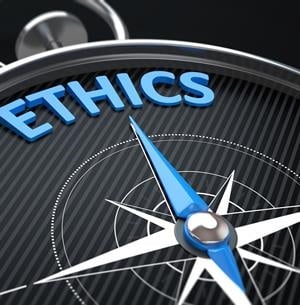
One of South Africa’s most urgent and vital needs is ethical and effective leadership in order to build partnerships and to encourage our polarised society to start working collaboratively.
A panel of distinguished speakers from academia, media and business told a GIBS Ethics and Governance Think Tank forum that the country’s leadership needs a compelling vision and has to make sacrifices for the sake of social transformation.
A compelling vision for South Africa Professor Adam Habib, Vice-Chancellor and Principal of the University of the Witwatersrand (Wits) said leaders needed to keep the end goal in sight, a constant vision that is always there no matter what they do. “We seemed to have lost the end goal of creating a more inclusive society,” he said.
Bonang Mohale, CEO of Business Leadership South Africa said leadership needs a compelling vision based on the idea that tomorrow can be substantially better than today.
“What does a great South Africa look like? What is the end game?” Mike Teke, CEO of Seriti Resources and former President of the Chamber of Mines asked. “We need to outline the fundamentals of what a good citizen looks like and we need leadership to talk about this vision,” he added.
The leaders South Africa needs now Mohale said leaders need courage and integrity: “Leaders talk straight and extend trust,” he said. While the Constitution mandates us to correct past injustices, “on our watch we have become more polarised, more racist and more sexist. How did we squander our potential?” Mohale asked.
He explained that leaders do not need to occupy a particular position or have titles before they help other people. “The higher you rise, the more you have to lift others.”
Thandeka Gqubule-Mbeki, Economics Editor of the SABC and one of the 'SABC 8' who were initially fired from the broadcaster for speaking out about the its editorial policy to censor protest coverage, agreed that leaders are not only those with titles or in formal positions of power.
“Leadership matters. Leaders are those who create the culture and set the context. In changing and evolving institutions, we as leaders, even those without titles, have to ask, ‘If this is not what we want, what is the new culture we would like to create? What would that culture yield us in terms of institutional and social benefits?’” she explained.
It is the role of leaders to deal with difficult trade offs, Habib added, as social transformation only happens when uncomfortable decisions are made.
He said leaders are those who are transparent about what they are doing and have the courage to engage their communities. It is essential that leaders act with integrity, he added.
Reflecting on his time leading Wits during the Fees Must Fall student protests in 2016, Habib said: “It is the easiest thing in the world to make concessions, but leaders have to make the hard decisions. You can’t simply bail when you are in the leadership position already and the hard choices have to be made.”
Leading for social transformation Gqubule-Mbeki argued that South Africa is at a crucial moment in the country’s history and advocated the pursuit of multistakeholder democracy following the German model.
“Germany consciously constructed a notion of leadership that is based on a social compact which governs every institution, including the private sector. According to this model, labour, politicians and business all have equal seats at the table and collectively govern in the public interest” she explained.
“We must deemphasise individual leadership and collectively take the pain across sectors that will take us to the next level. It would be very surprising for the most unequal country in the world not to have a trust deficit, and the asymmetry of power imposes a moral obligation on leaders,” Gqubule-Mbeki added.
Creating a sense of social cohesion and solidarity would require a symbolic sacrifice from leaders, the panel argued, and called for those in leadership positions to make personal sacrifices in order to challenge inequality.
“We have never confronted our fundamental problem of inequality,” Habib said. “Everyone must take a hair cut and feel some pain. I don’t believe we can heal our social differences and establish social trust unless CEOs, shareholders and the elite also make sacrifices.”
This wouldn’t even require a shift in lifestyle, he argued, but could be a simple as committing to a zero percent increase in salary for the next three to four years. “Leaders must be seen to be doing this publicly. Inequality is even more dangerous than poverty,” Habib added.
Gqubule-Mbeki concluded by calling on leaders to make a concerted effort to protect whistleblowers across South African institutions, saying the country’s problem was not one of apathy but rather of fear due to the threat of reprisals. “Whistleblowers are the conscience of South African institutions and are the ones who will stand up in future against any new attempts at capture.”
Teke concluded by saying that there was no place in South Africa for pessimists: “Pessimists are part of the problem. We need people who want to participate - active citizens who get involved, and we will better this country.”
- City Press is a media partner of the Gibs forums.




 Publications
Publications
 Partners
Partners








